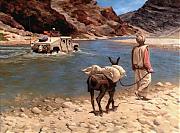Forgive me, but I'm going to go on a bit of a rant here. What in the frak is wrong with saying you don't know something? There is something really wrong with any culture that requires people to act as if they know and, in reality, don't. Honestly, it really burns my bu&&

! I see it in too many of my students and colleagues and, while I actually do understand where it comes from (and I could explain it in excruciating academic detail), I think it is one of the stupidest things we, as a species, have come up with!







 . Comments, criticism, etc. all welcome. This is the pre-conference draft and the final version isn't due until after the conference.
. Comments, criticism, etc. all welcome. This is the pre-conference draft and the final version isn't due until after the conference.


 . On the page length, yeah, you are right although I think 8 pages would be more like it (more later).
. On the page length, yeah, you are right although I think 8 pages would be more like it (more later). ! I see it in too many of my students and colleagues and, while I actually do understand where it comes from (and I could explain it in excruciating academic detail), I think it is one of the stupidest things we, as a species, have come up with!
! I see it in too many of my students and colleagues and, while I actually do understand where it comes from (and I could explain it in excruciating academic detail), I think it is one of the stupidest things we, as a species, have come up with! ). Still, the basic concept is , I think, a useful one. At any rate, I'd be interested to see what you think about it.
). Still, the basic concept is , I think, a useful one. At any rate, I'd be interested to see what you think about it.
Bookmarks